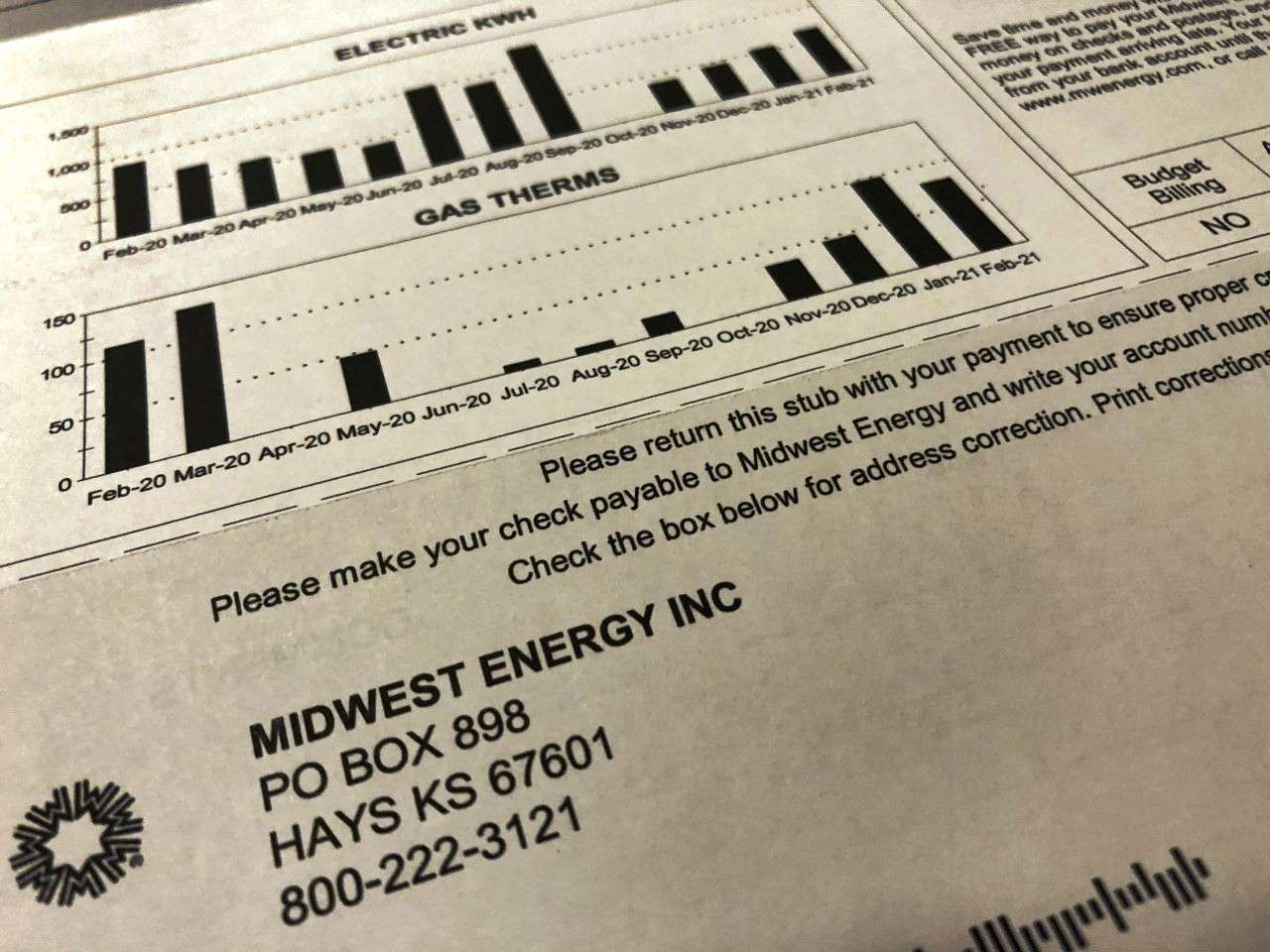
By BECKY KISER
Hays Post
Customers of Midwest Energy can expect their March bills to be higher than in February — but they won't be seeing the astronomic increases many Texas residents and businesses are facing following the record-breaking cold that covered much of the nation in mid-February.
Although they don't yet know the extent of the impact, Mike Morley, director of corporate communications and government affairs at Midwest Energy, said the Hays-based company won't get its own settlements from its suppliers — pipeline, gas and electric — until mid-March, "but we know there are going to be some pretty steep impacts."
Because of the extreme temperatures, customers used more energy to stay warm last month. At the same time, prices were skyrocketing for the electricity and natural gas Midwest Energy was purchasing.
"The price of gas the past 10-15 years has averaged out very low, usually below $3 a decatherm. During this past episode, you had some days the cost was above $620 a decatherm.
"Just a stratospheric increase."
"What we've decided to do as a company, as a co-op, is to take those extra charges, put them on the books and then amortize those over a period of months or even years," Morley says.
Residential electric bills in Texas as high as $17,000 have been reported.
"That's just crazy. We don't expect anything like that," he emphasized.
Texas is a unique situation, with a deregulated energy market. Morley thinks many residential customers and small businesses in the Lone Star State will see bills 10 or 15 times higher than they normally might be for the month.
"We know that sending a Midwest Energy bill for $2,500 is just a non-starter," according to Morley.
"It's been a stressful year these past 12-14 months for everybody, and we didn't want to add on to that."
Amortizing the extra charge will make monthly bills "a lot more palatable" for customers, he says.

Midwest Energy belongs to the Southwest Power Pool (SPP), an organization of all the transmission-owning utilities in a 14-state region.
Basically, SPP runs the grid, and it's a complex setup.
"Ideally, everything works out in the end and we all get lower costs. It's worked great for the four years it's been in play," Morley said
But what Morley calls a "unique confluence of events" in mid-February "came together and made it miserable for everybody."
Within the SPP, gas was in short supply and prices were very high. Power from wind generators was nearly non-existent during the unusually calm February weather.
"We had 6 and 7 mile-an-hour wind in western Kansas for 3 or 4 days which is unheard of in February.
"A lot of those [SPP] plants that generate electricity run on natural gas. And when the natural gas prices are so high, it makes it very, very uneconomical to generate.
"We actually ran into cases where you couldn't get enough gas to run plants throughout the 14-state region due to the frozen wells in Texas."
Millions of Texans were without electricity for days and then under boil water advisories when the power came back. More than 30 Texas residents died in the winter storm.
The situation resulted in several emergency alerts from SPP and Midwest Energy asked its customers to turn down thermostats and avoid running electricity-hogging appliances and machinery for a couple days.
"We never lost gas. We never lost electricity. We did have one short little interruption in Ellis and Ness counties but we were able to steer that primarily to the oil field and not impact homes and businesses.
"We want to thank everybody for the conservation measures they took when we asked for it. That made a huge difference in our ability to keep the gas flowing and the lights on."
Two record overnight lows were set in Hays the week of February 14.
Morley says lessons can be learned from the calamity.
"We're definitely going to be looking at things like how we purchase gas. Generally, utilities throughout the country have not done any gas hedging- buying gas on long term contracts.
Morley expects the entire energy industry to take a close look at what happened and how- especially the pricing aspect - and how to avoid a repeat of the disaster.
Midwest Energy has a couple of programs for customers to even out or even reduce their monthly bills as well as bill payment assistance to low income customers through the Midwest Customers Care program administered by The Salvation Army.
This is not the first time Midwest Energy has amortized a large charge.
In the late 1990s, the company purchased a gas system called KN Energy. That $28 million financial obligation was paid off in 2018 through a small monthly addition to gas customers' bills.






